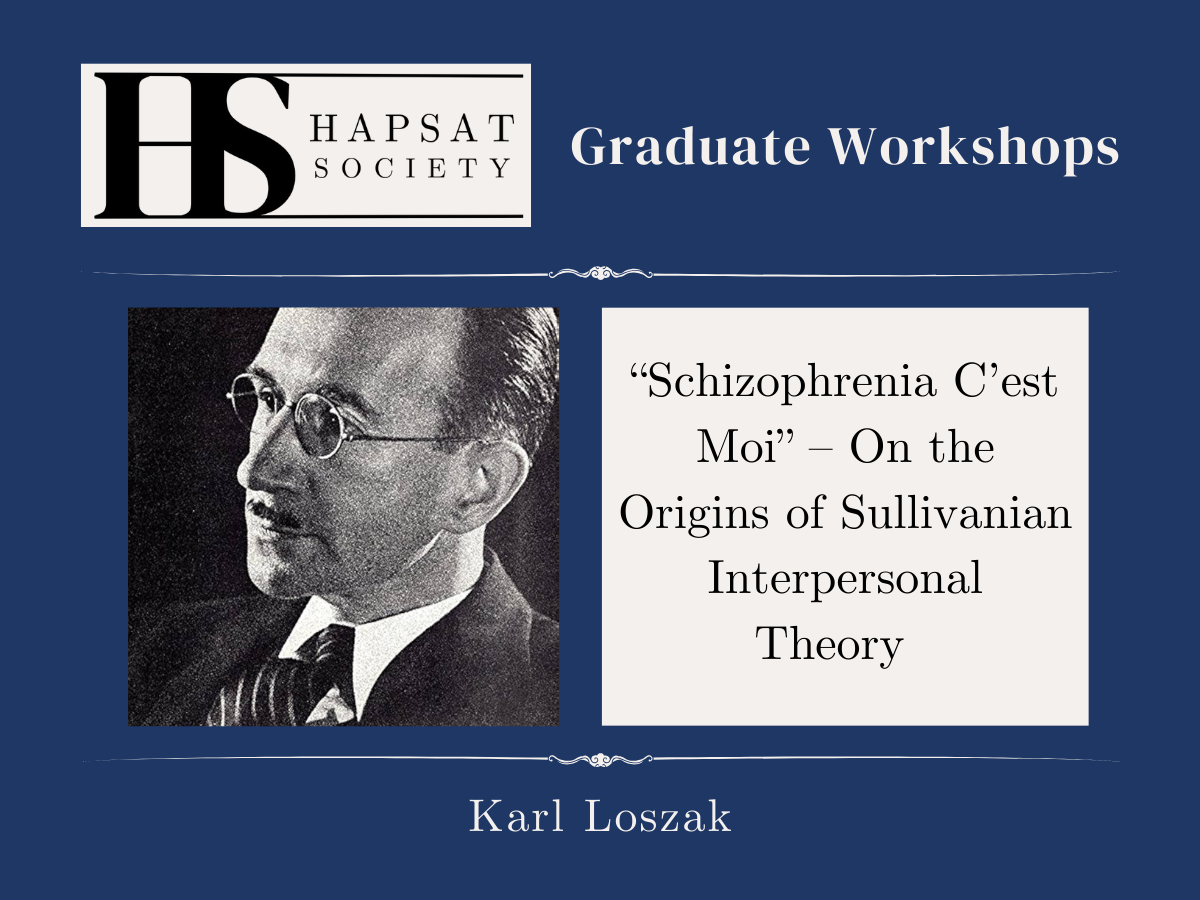HAPSAT Graduate Workshops - Third Winter Session
When and Where
Speakers
Description
HAPSAT GRADUATE WORKSHOPS
"Schizophrenia C'est Moi" - On the Origins of Sullivanian Interpersonal Theory
In-person event -Wednesday April 16- 12:00 p.m. to 1:30 p.m.
VC303
Harry Stack Sullivan (1892-1949) was an American psychiatrist who formulated an interpersonal theory of human psychological development at odds with Freudian instinct theory. After his death, his approach was absorbed, with minimal acknowledgement, into a variety of psy disciplines. Within mid-twentieth-century American psychoanalysis, his work was dismissed as “superficial,” even as a small cadre of his students transformed his interpersonal theory of psychiatry into an interpersonal theory of psychoanalysis. In the final decades of the twentieth century, elements of his theory began to appear in an emerging common ground among a variety of different psychoanalytic schools of thought.
My project treats Sullivan’s oeuvre as a case study in the social construction of psychiatric knowledge. Ironically, I suggest, Sullivan can be understood as a kind of “solitary genius.” That is, he remained throughout his life a very lonely man, but one whose genius lay in his use of rich interpersonal resources to formulate an enduring theory of human development. I hope to demonstrate that the wellspring of his passionate interest in human psychology lay in his adolescent experience of psychotic illness and mistreatment in an asylum. Yet, he demonstrated a preternatural ability to connect his thinking to others, both through his reading and writing and through personal collaborations with psychiatrists, psychoanalysts, and social scientists. And, I argue, it was these relationships in turn, that ensured the posthumous development and eventual survival of his theory.
In this talk, my focus is on the early roots of his interest in psychiatry. In 1932, Sullivan completed a manuscript, titled Personal Psychopathology, that was privately circulated during his lifetime, but not published until 1972. Generally understood as the most autobiographical of his writings, it is replete with clues about his adolescent experience of mental illness. One theme concerns his attempt to convey to his reader the subjective experience of becoming psychotic. Another is his construal of an interpersonal view of mental illness as a defense against self-blame. The latter, I suggest, is an important early precursor of Sullivan’s innovative theory of human psychological development.

Graduate Worskhsop Organizer: Alexandra Calzavara
![]()


